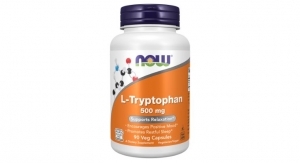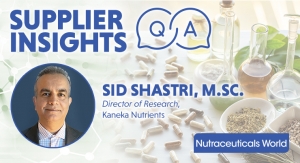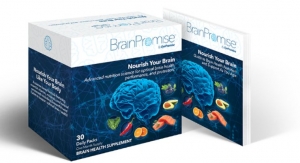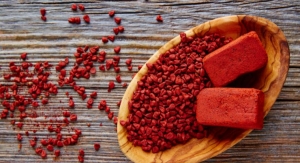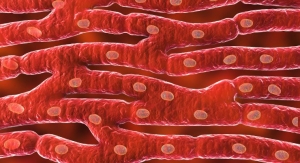Robert Barry, PhD09.01.07
For the ever-increasing aging population, more and more attention is being devoted to prevention and intervention, not only for the myriad of age-related diseases, but also for the aging process itself. Aging has historically been considered an inevitable and irreversible process affecting all living organisms. That conventional outlook has changed somewhat, especially in the major research centers where aging is aggressively being addressed as an accumulative disease process that may be amenable to modification.
It is notable that in only a few generations human life expectancy has nearly doubled. No doubt many are familiar with the studies investigating the effect of caloric restriction on the aging process. Importantly, when it comes to human growth, development and aging, an area receiving increased attention is that of bioenergetics.
Bioenergetics is defined as the study of the production and transformation of energy in cellular systems. Cellular energy in theform of ATP (adenosine 5'-triphosphate) is required for all physiological functions. Over 95% of the ATP produced in the body takes place in the mitochondria, which are located in every cell membrane. Coenzyme Q10 (CoQ10) is a critical cofactor in the production of ATP. CoQ10 is also the only lipid soluble antioxidant synthesized in the body that provides protective defense.
CoQ10 levels continuously decrease as people age. Although concerns associated with the aging process are numerous and quite varied, cardiovascular disease and neurodegenerative disease often top the list, as do age-related cosmetic issues, which affect skin and appearance.
CoQ10 plays a pivotal role in all of these issues. What follows is a brief introduction, and perhaps for many a review of this critical cofactor and its increasing role in healthy aging.
CoQ10 is the strongest known lipid soluble antioxidant biosynthesized that regenerates other antioxidants such as ascorbate (vitamin C) and alpha-tocopherol (vitamin E), and contributes to the stabilization and fluidity of cellular membranes. As mentioned previously, it is also a critical cofactor in the production of energy-real metabolic energy-in the form of ATP.
In the last 30 years, thousands of studies have been conducted and published on CoQ10 benefits for maintaining optimum health and healthy aging. Some of the areas of clinical interest include:
Cardiovascular Health
Anti-Fatigue
Skin Health & Beauty
Aging
Neurodegenerative (Parkinson's,
Huntington's, ALS and Alzheimer's Disease)
Macular Degeneration
Cancer
Depression
Metabolic Syndrome
Antioxidant Function
Muscular Dystrophy
Mitochondrial Disease
There are many benefits to be gained from including CoQ10 in supplements, as well as foods and beverages. Because CoQ10 is essential for the optimum production of cellular energy, CoQ10 enhances stamina and improves the body's overall state of health. It also protects against free radicals, strengthens the immune system and fosters resistance to disease.
CoQ10 is acquired through biosynthesis, supplementation and in small amounts from the diet. CoQ10 exists and functions in both the oxidized form (ubiquinone) and the reduced form (ubiquinol) in biological systems. It has an established role as an essential component of the electron transport chain and ATP synthesis in the mitochondria. The antioxidant action of the reduced form of CoQ10 (ubiquinol) is now considered to be one of its most important protective functions in cellular systems. Recent studies also reveal CoQ10 function in gene expression involved in human cell signaling, metabolism and transport.
As people age, the ability of the body to produce and metabolize CoQ10 declines. There can be several reasons for this, including increased metabolic demand, diseases, insufficient dietary CoQ10 intake, deficiency of factors required for biosynthesis, gene mutation and oxidative insult. Some reports say the decline in CoQ10 becomes apparent around 40 years of age, with some reports indicating decline as early as 20 years of age. The result is less cellular energy, slower conversion to the reduced form of CoQ10 and subsequently diminished protection against oxidative insult.
This metabolic sequence-the decline in CoQ10 levels in the body-has been associated with the cellular aging process and age-related oxidative insult resulting in acute and chronic conditions, such as cardiovascular disease, neurodegenerative disease, diabetes, chronic fatigue, metabolic syndrome, cancer and many others.
CoQ10 provides a strong first stage defense against cellular oxidative insult/ disease and needs to be replenished to maintain optimum health. Supplementation helps to replenish optimum levels of this important cellular antioxidant.
CoQ10 is one of best-selling nutritional supplements in the U.S. today based on dollar sales. Due to its efficacy, CoQ10 has experienced strong, continuous growth over the past 10 years, with an average growth rate of more than 13% over the past five years alone. Retail sales have in�creased from less than $200 million in 2001 to over $400 million in 2006, and sales are expected to maintain double-digit growth over the next few years in the nutritional supplement category alone.
Due to growth in the functional food category, CoQ10 is also becoming an attractive ingredient for mainstream food and beverage applications, particularly for products focused on antioxidant benefits or those touting "real" or "sustained" energy production. Consumer interest in such products is increasing as an alternative to the numerous caffeine and sugar-laden "boost and crash" products on the market today.
Japan already has numerous food and beverage products containing CoQ10 on the market that offer the promise of strong sales opportunities of similar application in the U.S. Future growth markets for CoQ10 include food and beverage, cosmeceuticals, animal feed and pet food. Due to its core functions of cellular energy production and antioxidant benefits, CoQ10 offers powerful benefits internally and externally for both humans and their pets.
There have been over 35 placebo-controlled trials using CoQ10 in cardiovascular disease involving thousands of patients. In addition, no toxicity or drug interactions have been reported in the CoQ10 group compared to the placebo group. Clinical experience with supplemental CoQ10 in cardiovascular disease exhibits significant beneficial effects based on studies focusing on congestive heart failure, ischemic heart disease, hypertension and heart surgery.
CoQ10 is found in very high concentrations in heart muscle where it contributes 95% of the cellular ATP production-of critical importance in heart muscle function given this tissue's extreme energy requirements. Deficiency of CoQ10 in the blood and heart muscle has been documented in various heart disorders. Impairment in myocardial function associated in age-related CoQ10 deficiency has also been reported in patients undergoing coronary artery bypass surgery. In some cases, this impairment was eliminated with incubation of the atrial myocardium with CoQ10. Preoperative supplemental CoQ10 resulted in improved coronary bypass surgery.
In 1990, the first human observations on the interaction between statins and CoQ10 were published. Patients with pre-existing cardiomyopathy exhibited significant decreases in blood CoQ10 levels, as well as clinical deterioration after having started statin therapy. An increase in supplemental CoQ10 resulted in reversal of both the decreased CoQ10 levels and the decline in clinical status.
Dramatic decreases in CoQ10 cellular concentrations, mitochondrial dysfunction and oxidative damage occur during the aging process, and have been associated with cellular dysfunction in many age-related pathologies, including neurodegenerative diseases such as Alzheimer's disease, ALS, Parkinson's disease and Huntington's disease.
CoQ10 has been shown to be "neuroprotective" in animal models of a number of neurodegenerative diseases, and has exhibited efficacy in human trials for Parkinson's, Huntington's, ALS and other age-related pathologies. For example, in a major NIH-funded study on Parkinson's patients, supplemental CoQ10 resulted in a slowing of the disability by 44% and exhibited an improvement on all three subscores of the UPDRS (Unified Parkinson's Disease Rating Scale), including mental score, activities of daily living score and motor score.
Based on the results from Phase II clinical trials, the NINDS (National Institute of Neurological Disease and Stroke) is seeking approval for Phase III clinical trials of CoQ10 for Parkinson's, Huntington's and ALS.
Skin is one of the largest organs in the body. It is the first line of defense against direct physical damage from outside, as well as the most immediate interactive organ providing constant information about the ever-changing environmental conditions. In addition to the vital constant external interactive processes, as we age the skin is also under constant stress from changing internal conditions.
Skin changes as people age-it becomes thinner, less smooth, and takes longer to heal. In addition, wrinkles, dryness and age spots start to show themselves as people get older. This is in part due to the concentration of CoQ10 diminishing with age.
It has also been reported that CoQ10 exhibits UV protection, antioxidative activity to human skin, shallows wrinkles and results in reduction of the horny-layer of the epidermis. In fact, several studies indicate that skin CoQ10 levels are replenished both by internal as well as topical application, with optimal benefit coming from the combination-"Beauty from Within," a catchphrase currently em�ployed by many cosmetic companies, is applicable here.
As mentioned previously, CoQ10 serves two pivotal roles in the body-bioenergetics (energy metabolism) and lipid-soluble antioxidant protection. All of the metabolic systems require constant energy input in order to function properly for continuous cellular growth, development and maintenance. Supplementation with CoQ10 replenishes the diminished levels, fostering a protective defense against oxidative stress and the age-related diseases.NW
About the author: Robert Barry, PhD, is in scientific affairs for Kaneka Nutrients, L.P., Pasadena, TX. He can be reached at 281-291-4489; E-mail: rbarry@kanekatexas.com.
It is notable that in only a few generations human life expectancy has nearly doubled. No doubt many are familiar with the studies investigating the effect of caloric restriction on the aging process. Importantly, when it comes to human growth, development and aging, an area receiving increased attention is that of bioenergetics.
Bioenergetics is defined as the study of the production and transformation of energy in cellular systems. Cellular energy in theform of ATP (adenosine 5'-triphosphate) is required for all physiological functions. Over 95% of the ATP produced in the body takes place in the mitochondria, which are located in every cell membrane. Coenzyme Q10 (CoQ10) is a critical cofactor in the production of ATP. CoQ10 is also the only lipid soluble antioxidant synthesized in the body that provides protective defense.
CoQ10 levels continuously decrease as people age. Although concerns associated with the aging process are numerous and quite varied, cardiovascular disease and neurodegenerative disease often top the list, as do age-related cosmetic issues, which affect skin and appearance.
CoQ10 plays a pivotal role in all of these issues. What follows is a brief introduction, and perhaps for many a review of this critical cofactor and its increasing role in healthy aging.
CoQ10: A Protective Power Source
CoQ10 is the strongest known lipid soluble antioxidant biosynthesized that regenerates other antioxidants such as ascorbate (vitamin C) and alpha-tocopherol (vitamin E), and contributes to the stabilization and fluidity of cellular membranes. As mentioned previously, it is also a critical cofactor in the production of energy-real metabolic energy-in the form of ATP.
In the last 30 years, thousands of studies have been conducted and published on CoQ10 benefits for maintaining optimum health and healthy aging. Some of the areas of clinical interest include:
Cardiovascular Health
Anti-Fatigue
Skin Health & Beauty
Aging
Neurodegenerative (Parkinson's,
Huntington's, ALS and Alzheimer's Disease)
Macular Degeneration
Cancer
Depression
Metabolic Syndrome
Antioxidant Function
Muscular Dystrophy
Mitochondrial Disease
There are many benefits to be gained from including CoQ10 in supplements, as well as foods and beverages. Because CoQ10 is essential for the optimum production of cellular energy, CoQ10 enhances stamina and improves the body's overall state of health. It also protects against free radicals, strengthens the immune system and fosters resistance to disease.
CoQ10 is acquired through biosynthesis, supplementation and in small amounts from the diet. CoQ10 exists and functions in both the oxidized form (ubiquinone) and the reduced form (ubiquinol) in biological systems. It has an established role as an essential component of the electron transport chain and ATP synthesis in the mitochondria. The antioxidant action of the reduced form of CoQ10 (ubiquinol) is now considered to be one of its most important protective functions in cellular systems. Recent studies also reveal CoQ10 function in gene expression involved in human cell signaling, metabolism and transport.
As people age, the ability of the body to produce and metabolize CoQ10 declines. There can be several reasons for this, including increased metabolic demand, diseases, insufficient dietary CoQ10 intake, deficiency of factors required for biosynthesis, gene mutation and oxidative insult. Some reports say the decline in CoQ10 becomes apparent around 40 years of age, with some reports indicating decline as early as 20 years of age. The result is less cellular energy, slower conversion to the reduced form of CoQ10 and subsequently diminished protection against oxidative insult.
This metabolic sequence-the decline in CoQ10 levels in the body-has been associated with the cellular aging process and age-related oxidative insult resulting in acute and chronic conditions, such as cardiovascular disease, neurodegenerative disease, diabetes, chronic fatigue, metabolic syndrome, cancer and many others.
CoQ10 provides a strong first stage defense against cellular oxidative insult/ disease and needs to be replenished to maintain optimum health. Supplementation helps to replenish optimum levels of this important cellular antioxidant.
The Evolution of CoQ10
CoQ10 is one of best-selling nutritional supplements in the U.S. today based on dollar sales. Due to its efficacy, CoQ10 has experienced strong, continuous growth over the past 10 years, with an average growth rate of more than 13% over the past five years alone. Retail sales have in�creased from less than $200 million in 2001 to over $400 million in 2006, and sales are expected to maintain double-digit growth over the next few years in the nutritional supplement category alone.
Due to growth in the functional food category, CoQ10 is also becoming an attractive ingredient for mainstream food and beverage applications, particularly for products focused on antioxidant benefits or those touting "real" or "sustained" energy production. Consumer interest in such products is increasing as an alternative to the numerous caffeine and sugar-laden "boost and crash" products on the market today.
Japan already has numerous food and beverage products containing CoQ10 on the market that offer the promise of strong sales opportunities of similar application in the U.S. Future growth markets for CoQ10 include food and beverage, cosmeceuticals, animal feed and pet food. Due to its core functions of cellular energy production and antioxidant benefits, CoQ10 offers powerful benefits internally and externally for both humans and their pets.
Heart Health
There have been over 35 placebo-controlled trials using CoQ10 in cardiovascular disease involving thousands of patients. In addition, no toxicity or drug interactions have been reported in the CoQ10 group compared to the placebo group. Clinical experience with supplemental CoQ10 in cardiovascular disease exhibits significant beneficial effects based on studies focusing on congestive heart failure, ischemic heart disease, hypertension and heart surgery.
CoQ10 is found in very high concentrations in heart muscle where it contributes 95% of the cellular ATP production-of critical importance in heart muscle function given this tissue's extreme energy requirements. Deficiency of CoQ10 in the blood and heart muscle has been documented in various heart disorders. Impairment in myocardial function associated in age-related CoQ10 deficiency has also been reported in patients undergoing coronary artery bypass surgery. In some cases, this impairment was eliminated with incubation of the atrial myocardium with CoQ10. Preoperative supplemental CoQ10 resulted in improved coronary bypass surgery.
In 1990, the first human observations on the interaction between statins and CoQ10 were published. Patients with pre-existing cardiomyopathy exhibited significant decreases in blood CoQ10 levels, as well as clinical deterioration after having started statin therapy. An increase in supplemental CoQ10 resulted in reversal of both the decreased CoQ10 levels and the decline in clinical status.
Neurodegeneration
Dramatic decreases in CoQ10 cellular concentrations, mitochondrial dysfunction and oxidative damage occur during the aging process, and have been associated with cellular dysfunction in many age-related pathologies, including neurodegenerative diseases such as Alzheimer's disease, ALS, Parkinson's disease and Huntington's disease.
CoQ10 has been shown to be "neuroprotective" in animal models of a number of neurodegenerative diseases, and has exhibited efficacy in human trials for Parkinson's, Huntington's, ALS and other age-related pathologies. For example, in a major NIH-funded study on Parkinson's patients, supplemental CoQ10 resulted in a slowing of the disability by 44% and exhibited an improvement on all three subscores of the UPDRS (Unified Parkinson's Disease Rating Scale), including mental score, activities of daily living score and motor score.
Based on the results from Phase II clinical trials, the NINDS (National Institute of Neurological Disease and Stroke) is seeking approval for Phase III clinical trials of CoQ10 for Parkinson's, Huntington's and ALS.
Cosmetics
Skin is one of the largest organs in the body. It is the first line of defense against direct physical damage from outside, as well as the most immediate interactive organ providing constant information about the ever-changing environmental conditions. In addition to the vital constant external interactive processes, as we age the skin is also under constant stress from changing internal conditions.
Skin changes as people age-it becomes thinner, less smooth, and takes longer to heal. In addition, wrinkles, dryness and age spots start to show themselves as people get older. This is in part due to the concentration of CoQ10 diminishing with age.
It has also been reported that CoQ10 exhibits UV protection, antioxidative activity to human skin, shallows wrinkles and results in reduction of the horny-layer of the epidermis. In fact, several studies indicate that skin CoQ10 levels are replenished both by internal as well as topical application, with optimal benefit coming from the combination-"Beauty from Within," a catchphrase currently em�ployed by many cosmetic companies, is applicable here.
As mentioned previously, CoQ10 serves two pivotal roles in the body-bioenergetics (energy metabolism) and lipid-soluble antioxidant protection. All of the metabolic systems require constant energy input in order to function properly for continuous cellular growth, development and maintenance. Supplementation with CoQ10 replenishes the diminished levels, fostering a protective defense against oxidative stress and the age-related diseases.NW
About the author: Robert Barry, PhD, is in scientific affairs for Kaneka Nutrients, L.P., Pasadena, TX. He can be reached at 281-291-4489; E-mail: rbarry@kanekatexas.com.







